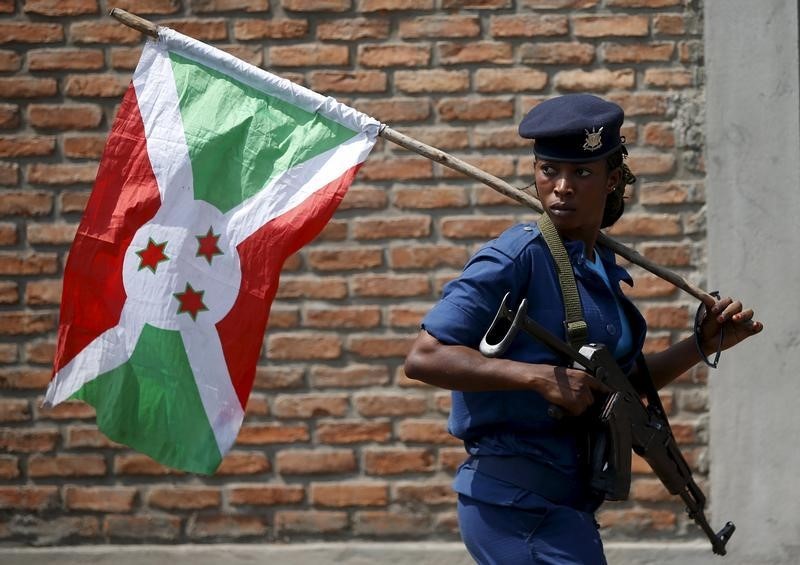BUJUMBURA (Reuters) - Peace talks to resolve Burundi's violent political crisis ahead of polls next week were suspended on Sunday after the government side failed to show up, the mediator said.
The crisis was triggered by President Pierre Nkurunziza's decision to stand for a third term in an election due to take place on Tuesday. The move sparked weeks of violent street protests and an attempted coup in mid-May.
Opposition parties say Nkurunziza's re-election bid is unconstitutional and are boycotting the election race. The president cites a court ruling declaring he can run for five more years in office.
Dozens of people have already died in protests in the east African nation which emerged from civil war in 2005. Hundreds of thousands have fled to other states with a history of ethnic conflict, including neighboring Rwanda.
African efforts to cool the Burundi crisis have stumbled, despite calls by the African Union and regional east African states for dialogue.
Crispus Kiyonga, the Ugandan defense minister who chaired the talks, said it was not clear why the government stayed away and said they would resume when it sends representatives.
Government officials were not immediately available to explain their absence.
Uganda's President Yoweri Museveni was appointed the mediator of the crisis but he only chaired the first day of talks between the government and opposition parties, before leaving his defense minister to carry on last week.
Kiyonga said the dialogue had achieved some agreements before it was halted on Sunday, including the need to disarm illegally armed groups.
"The disarmament should be observed and assisted by the African Union military and human rights experts," he said in a statement, without specifying the groups to be disarmed.
Government critics have singled out the ruling party's youth wing, the Imbonerakure, as one of the illegally armed and trained groups.
Western diplomats refer to it as an armed militia of Burundi's ruling CNDD-FDD party.

The looming presidential elections were likely to trigger major instability and clashes which could spread across Burundi's borders, seven independent U.N. human rights investigators said on Thursday.